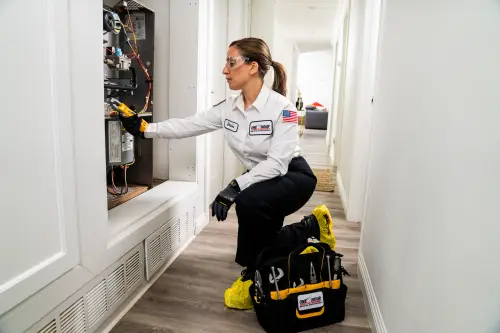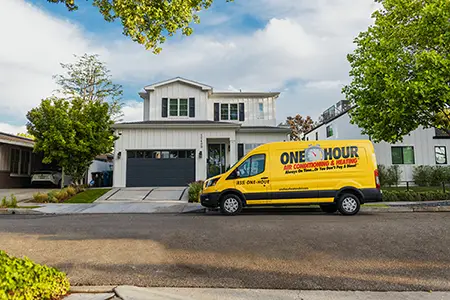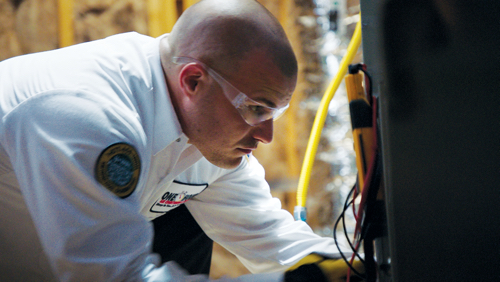Can You Fix That Old Heater, or Is It Time to Say Goodbye?
You know that moment when your heater decides to quit on the coldest night of the year? Yeah, I’ve been there. As someone who’s dealt with their fair share of heating problems, I’ve learned quite a bit about when you can breathe new life into an old heater and when it’s time to let go. Let me share what I’ve discovered.
Good News: An Old Heater Can Often Be Fixed!
Here’s the thing just because your heater’s getting up there in years doesn’t mean it’s ready for retirement. I’ve seen plenty of “ancient” heaters bounce back to life with the right repairs. But (there’s always a but, right?) it really depends on what’s wrong with it and how old it is.
Signs Your Old Heater Might Just Need a Quick Fix
Let me tell you about my neighbor’s situation. Her 15-year-old furnace stopped working in the middle of January – talk about terrible timing! She was convinced she’d need to spend thousands on a new system but guess what? It just needed a new igniter that cost less than $200. Here are some other signs that your heater might just need a tune-up rather than a total replacement:
The problem is pretty specific – like if it’s just not blowing warm air or making a weird noise. These are usually pretty straightforward fixes.
Your heater isn’t ancient (think less than 15 years old). Most heaters can keep going for 15-20 years if you treat them right.
You can still get parts for it. This is huge! If your repair person can easily find the parts they need, you’re probably in good shape.
When It’s Time to Wave the White Flag
Look, I’m all for fixing things when possible, but sometimes you’ve got to face facts.
Here’s when you might want to start shopping for a new heater:
- It’s breaking down more often than your teenager’s car. If you’re on a first-name basis with your repair person because they’re at your house every other month, it might be time to call it quits.
- Your energy bills are through the roof. I had friends in Ohio who noticed their heating bills kept climbing year after year. When they finally upgraded their old furnace, their bills dropped by 25%!
- Major parts are failing. If fixing your heater costs more than half of what a new one would cost, you might want to think about replacing it instead.
- There are safety concerns. This is non-negotiable – if your heater’s putting out carbon monoxide or other safety risks, it’s time to say goodbye.
The Repair Process: What to Expect
If you decide to go the repair route, here’s how it usually goes down:
First, you’ll need a pro to check things out. Make sure they’re licensed and insured – this isn’t the time to let your cousin’s friend who “knows about heaters” take a crack at it.
They’ll figure out what’s wrong and give you an estimate. Don’t be shy about getting a second opinion if the price seems high. I always do!
Then they’ll either fix it on the spot or order parts if needed. Sometimes they might even tell you it’s not worth fixing – and honestly, appreciate that honesty!
Making the Big Decision: Repair or Replace?
Here’s my rule of thumb: Fix it if:
- It’s just something small (like filters or a quick part replacement)
- Your heater’s under 15 years old and hasn’t given you trouble before
- You’re tight on cash and the repair is affordable
But think about replacing it if:
- Your energy bills keep climbing
- It’s older than 15 years and acting up
- Repairs are getting expensive or parts are hard to find
- There are any safety concerns (seriously, don’t mess with this one)
Keep That Heater Happy
Want to avoid this whole situation in the future?
Here’s what I’ve learned works best:
- Get your heater checked once a year by a pro
- Change those filters regularly (set a reminder on your phone!)
- Keep vents and ducts clean
- Pay attention if your heater starts making weird noises or smells funny
- Get a programmable thermostat to make your heater’s job easier
Bottom Line
Listen, I get it dealing with heating problems is never fun, especially when it’s freezing outside. But knowing when to repair and when to replace can save you a lot of headaches (and money!) in the long run.
If you’re still not sure what to do, talk to a good HVAC pro. And remember, whether you decide to repair or replace, the goal is keeping your home cozy without breaking the bank. Stay warm out there!
